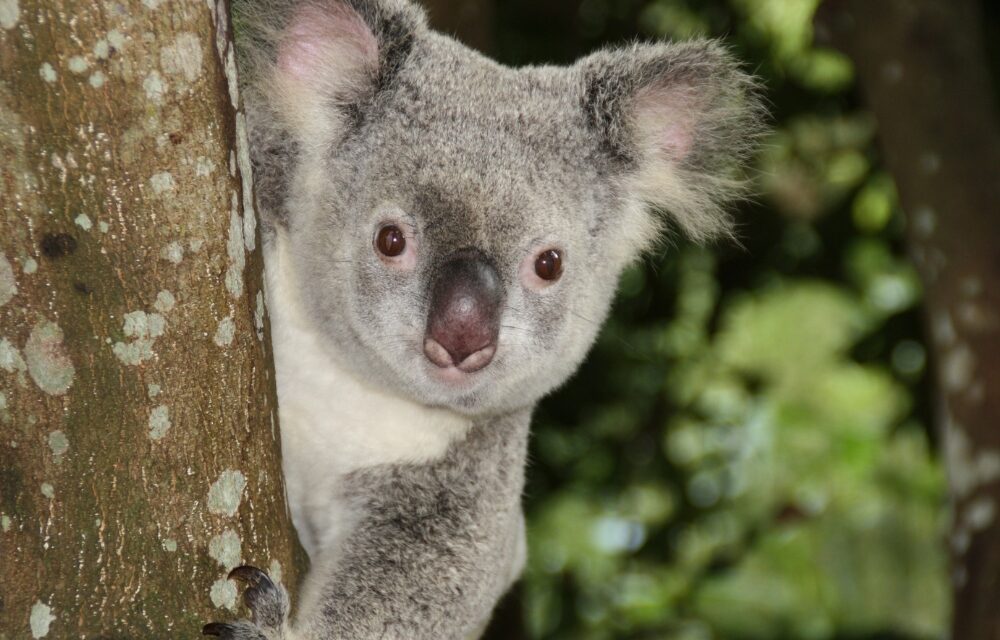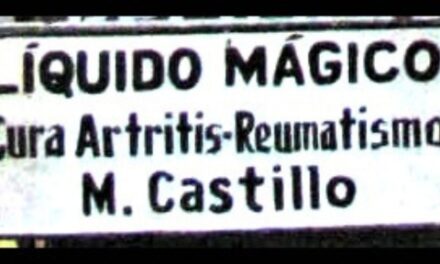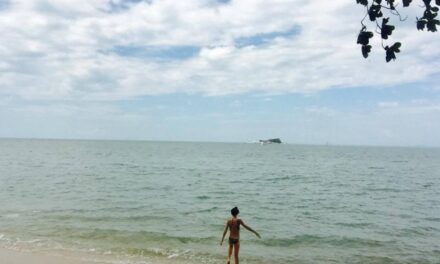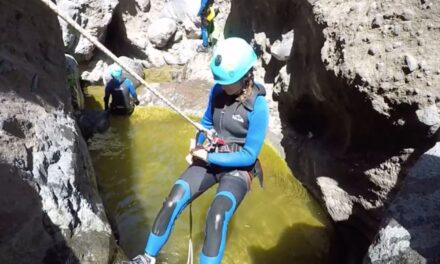“I’m sorry,” said the taxi driver who introduced himself as Ray. “I’d play music but the radio is broken.” It was the second time he’d apologized since picking me up. The first was to tell me the 45-minute ride along the coast from Port Douglas to Cairns would take over an hour. There was road construction. I told him I didn’t mind. I was planning on putting my earphones in anyway.
I’d just walked off a family snorkel cruise filled with a hundred kids definitely not using their library voices. I needed an hour to myself. But before I could close my eyes and escape with Jagged Little Pill, Ray spoke again.
“Where are you from Miss Katie?”
I told him I was from Montana. Being polite, although I wasn’t particularly interested, I asked where he was from. “I’m from here,” he said eagerly, as if he’d been waiting his entire life to answer this very question. “If you have time for a story, I’ll tell you where I was born.”
“I’m actually running late for an appointment with Alanis,” I wanted to say. Instead, I slid my earphones back into my bag.
“I’m obviously aborigine,” Ray stated, turning around to look at me in the backseat. I nodded, not sure I was ready for the elephant in the car to be discussed. It didn’t matter. Ray was ready.
He took off his sunglasses, revealing startling green eyes. “As you can see, a bull jumped the fence somewhere.” I laughed, immediately imagining cartoon cows on a family tree. Then I took off my sunglasses. “I have green eyes too,” I said, surprised we had this physical feature in common. Green is the rarest eye color. Only two percent of people have it. I’m of European descent, so it made sense. But Ray, as he wanted to tell me, was indigenous.
“When my mum was nine months pregnant her crawfish cravings were outta control,” he began. She made his father go to the reef to fish. The reef lay about 500 meters off shore, between two small islands. I could easily see them from the car. According to Ray, Americans dropped bombs between the islands for target practice during WWII.
“Most people don’t know the aborigines helped in WWII,” he said. Opting to delay his own creation story, Ray began sharing another story. It was about two American pilots shot down by the Japanese. Both men were on the brink of death when the aborigines rescued them. It was such an unforgettable event the tribe created a dance about the white men who fell from the sky.
“But the pilots, who were from Texas, rejected the dance,” Ray said. “They didn’t want to be reminded they were saved by people who looked like us.”
Unsure of what to say to that, I asked Ray if he’d ever been to the US. He had, once. A few years ago, Ray – who I guessed to be in his mid-50’s— did an exchange program with the Apache Nation. He used the words “exchange” and “program” very loosely. No member of the Apache Nation in turn visited Australia. And there really wasn’t a program. His friend’s wife just happened to be a teacher in Arizona. They thought it would be neat if Ray visited and spoke to reservation schools in Arizona and New Mexico. So, they bought him a ticket, and a few weeks later he landed at LAX. “I was the only one swimming at Venice Beach,” he recalled, as if the rest of the tourists were the crazy ones.
Ray quickly realized he wasn’t just speaking to students. He was speaking to entire reservations. Everyone in the communities was invited to watch him dance and demonstrate how to use a boomerang. His experience, however, wasn’t as magical as he’d hoped for. “We don’t have much in common,” he said. “Our creation stories are different. Our ceremonies are different. Our family structures and societies are so different. We’re just alike in that we’re indigenous.”
He also seemed shocked to not meet a single Native American who had been to Australia. He started every talk with one question: What do you know about Australia? His audience had two answers. “Crocodiles and down unda,” Ray laughed. But I could tell he was disappointed.
I asked Ray if he had kids. He has three, all in their teens or early 20s. “Do they look like you?” I asked, curious to see if the green eyes had been passed on. “No, thank God,” he said, as if having lighter eyes and skin was a curse. “They’re like this,” he said, slapping the black dashboard with his left hand. “The only time my wife says they look like me is when they’re misbehaving.”
I learned Ray’s daughter has Type 1 diabetes. My father has it too. We spent the next few miles trading low blood sugar horror stories. Ray knew a lot more than I did. Some of his medical knowledge is inherited. His granny was their community’s medicine woman. She would make him climb mango trees to collect green ants. They live in the canopy, and boast a backend extremely high in Vitamin C. Since they were in so many remedies, Ray was always on ant duty – which he hated. “Don’t get me wrong,” he said defensively. “I loved climbing trees. But back then I had a huge afro, and the ants would crawl into it and build nests.”
As I laughed, Ray pointed at the stretch of sand we were driving by. Apparently, it was the best spot around for catching sting rays. Before I could ask what I’d need to catch a sting ray for, he pointed out the trees on the other side of the road. The aborigine women used their leaves for weaving. Next to them were eucalyptus trees – which Ray said I should use if I wanted to make a didgeridoo.
“Technically, it’s not a didgeridoo,” he added. “White men named it that because they thought the noise it makes sounds like ‘didgeridoo.’” Ray rattled off several multi-syllable words—the strange instrument’s even stranger proper aboriginal names. At that point in our conversation, I decided to bring up the first movie that comes to mind when I think of Australia.
“How politically correct were the aborigine scenes in Crocodile Dundee?” I asked. Ray just laughed in response. Apparently most of the aborigines in the movie were brought in. They weren’t native to the regions where Paul Hogan’s character supposedly encountered them. Unfortunately, Ray wasn’t able to suggest a popular movie where aborigines are accurately depicted. So, he changed the topic to revenge.
“Do you know the best thing to do if you’re really mad at someone?” he asked. I didn’t. He told me I should park their car in a place with lots of bats. Since they eat so much fruit their poop is pure acid. “It destroys paint jobs,” Ray said mischievously. I told him that made sense. At least the part about the poop being acidic – I’m not an advocate for ruining anyone’s property.
Ray went on about the bats. “As kids, we’d throw them in the air to get them to fly.” They’d also catch pythons. Ray explained how the goal was to get the snake to wrap itself around you. It didn’t usually want anything to do with Ray or his friends, so they’d have to force it. The adults in the community didn’t exactly encourage treating animals this way. “Mom always had the switch waiting for me when I got home” Ray reminisced. “So, most days I just wouldn’t go home.”
I think mention of his mom reminded Ray he’d never told me where he was born. Without skipping a beat, he picked up where he’d left off nearly an hour earlier. His mom’s pregnancy cravings had brought her and Ray’s father to the two islands where Americans practiced dropping bombs. His mom waited on the sand while her husband went to find her some crayfish in the reef. Of course, when he was underwater, her water broke.
Ray was born right there on that beach. “Technically, it was illegal,” he said. “I was illegal.” He didn’t have a birth certificate until his parents found a nurse who helped them forge one saying he was born at the hospital in Cairns.
By this point, we’d reached Cairns. My hotel was on the horizon, and Ray was asking if I liked Hummers. Apparently, in addition to driving a taxi during the day, he leads Hummer night tours in the rainforest. “I’m also the chef,” Ray said, reaching into the car’s console. He pulled out a flier and handed it to me. The tour ended around a campfire with BBQ kangaroo and crocodile. Jokingly, I asked what’s on the menu for vegans.
“You’re vegan?” Ray asked, obviously annoyed. He wasn’t upset at the idea that I didn’t eat meat as much as he was upset that I hadn’t told him yet. Evidently, I should have disclosed that when he told me he was an aborigine. Now, sitting in front of the hotel was not the time. As he got my bag out of the trunk I told him I grew up on a cattle ranch so I’m definitely not vegan.
Then I shook his hand and sincerely thanked him for the ride and the stories. Something told me the passenger taking my still-warm seat would be met with an apology.
“I’m sorry. I’d play music but the car’s radio is broken.”
